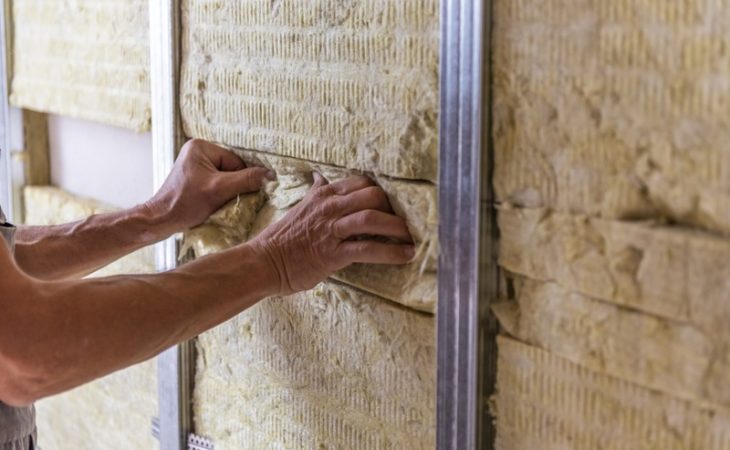Choosing the right insulation for your home is crucial for maintaining comfort and reducing energy bills. With various options available, understanding the best insulation materials can help make an informed decision. This guide will navigate through several insulation types, discuss their benefits, and explore factors to consider when selecting the best fit for a home.
Best Insulation Materials for Your Home
Several insulation materials stand out for their effectiveness and cost-efficiency. These options are widely used in homes due to their proven performance in different climates and home structures:
-
Fiberglass Insulation: A popular choice for good reason. Made from fine glass fibers, fiberglass offers great thermal resistance and is easy to install in batts or rolls. It’s a cost-effective option that suits most residential needs.
-
Foam Board Insulation: These rigid panels are versatile and boast a high R-value per inch. Ideal for insulating floors, ceilings, and unfinished walls, foam boards are excellent for small spaces needing additional moisture resistance.
-
Spray Foam Insulation: Known for expanding to fill gaps, spray foam creates an airtight seal. It excels in oddly shaped or hard-to-reach spaces, providing superior insulation even in extreme weather conditions.
-
Cellulose Insulation: Made from recycled paper products, cellulose is an eco-friendly option known for high R-values. It settles into difficult-to-insulate spaces, making it ideal for those focusing on sustainability.
-
Cotton (Denim) Insulation: As a sustainable choice, cotton insulation is made from recycled fabric, offering non-toxic insulation. It provides good thermal performance, comparable to more traditional materials.
Factors in Choosing Insulation
When choosing insulation, several factors should guide your decision to ensure the best outcomes:
-
R-value: This indicates the material’s resistance to heat flow. Higher R-values signal better insulating properties, important for both hot and cold climates.
-
Cost Considerations: Budget is a significant factor. While some materials are cheap initially, others might provide savings through energy efficiency over time.
-
Environmental Impact: For eco-conscious homeowners, sustainable materials offer a great solution. These options not only help in reducing environmental waste but can also provide healthier indoor air quality.
-
Installation Areas: Whether insulating an attic, walls, or floors, specific materials may work better in certain locations. This can influence both the choice and amount of insulation required.
Popular Insulation Types
Diving deeper into the specifics of insulation materials can help clarify their suitability for different needs:
-
Fiberglass Insulation is widely praised for its affordability and ease of installation. However, proper caution is necessary during installation due to potential skin irritation. Despite its effectiveness, it might not be suitable for spaces with moisture issues.
-
Foam Board Insulation offers a hard-to-beat moisture resistance that’s essential in some environments. These boards are pricier but deliver good performance. They might require professional help for cutting and fitting in unique spaces.
-
Spray Foam Insulation is a premium option due to its high effectiveness. Although more costly, it delivers superior insulation by expanding and sealing air leaks. Its application is best left to professionals for optimal results.
-
Cellulose Insulation is versatile and eco-friendly. One issue is that it might settle over time, requiring additional installation to maintain its effectiveness. Moisture control measures are essential to prevent issues.
-
Cotton (Denim) Insulation appeals to those looking for non-toxic, sustainable solutions. Offsetting its higher cost is its ease of handling and effective thermal performance, making it a suitable choice for sensitive spaces.
Homeowners looking for tailored solutions may consider consulting with local experts, such as those providing home insulation services Utah County. They offer assessments that cater to specific regional needs and preferences.
Maintaining Your Home’s Insulation
Ongoing maintenance is key to ensuring your home’s insulation remains effective. Routine checks can prevent settlement or moisture-related issues that could impair insulation’s performance. Monitoring for gaps or compressions, especially after significant weather changes or home renovations, is essential.
Utilizing professional services can further ensure proper insulation performance. For instance, companies that provide disposal and reinstallation can help maintain maximum efficiency over the years. Optimizing your home’s thermal defense can also improve your energy efficiency, leading to consistent utility savings and a comfortable living environment throughout the year.
Dispelling Insulation Myths
Misconceptions often cloud the decision-making process when selecting insulation. Here are a few myths debunked:
-
Myth: More insulation always improves efficiency. Adding too much insulation doesn’t always mean better performance. It’s about using the right type and ensuring proper installation.
-
Myth: Only cold climates require insulation. Insulation helps in all climates, keeping heat out during summer and during winter.
-
Myth: All insulation materials work the same. Different materials come with different properties and effectiveness levels, each serving distinct needs.
Understanding these realities ensures a better choice, reducing unnecessary expenditures on energy bills while enhancing comfort. Companies like Elevate Insulation provides further insights into sustainable insulation, offering services that can be customized to meet individual needs.
Advantages of Optimal Insulation
Proper insulation is a long-term investment with numerous benefits:
-
Enhanced Energy Savings: Insulation reduces energy consumption, thus lowering heating and cooling costs by maintaining consistent indoor temperatures.
-
Improved Comfort: A well-insulated home ensures a stable and comfortable environment across all seasons, irrespective of outside weather conditions.
-
Noise Reduction: Some insulation materials provide soundproofing, adding an extra layer of peace to your living areas.
-
Favorable Environmental Impact: Opting for eco-friendly insulation materials contributes to sustainability, reducing the home’s ecological footprint.
Final Thoughts
Selecting the best insulation materials for a home involves understanding your specific requirements and the unique advantages each material offers. From cost-effective fiberglass to eco-friendly cotton, the choices cater to various priorities like energy savings, environmental impact, and installation convenience.
Consulting with professionals, for instance, those offering tailored solutions, ensure a more comprehensive approach to optimizing your home’s energy efficiency. Embracing effective insulation will not only lead to lower utility bills but also elevate the comfort and sustainability of your living space for years to come.








